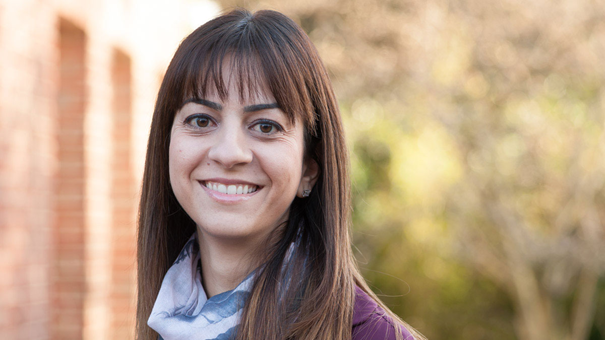Dr Maria Kambouri is an Associate Professor of Early Years Childhood Education and Care (University of Reading). Her research is mainly interested in the theoretical and practical conditions necessary for the development of successful partnerships and she has explored this in the context of early years education in relation to working in partnership with parents (home-school relationships) but also in relation to working in parentship with research participants and university students (Participatory Research and developing curriculum for Higher Education). Dr Kambouri has co-led the Marvellous Mums project which supported women to develop their self-esteem and confidence while she also led the funded 4Ps Project: Practitioners and Parents Play Partnership, that was recently completed with great success. Maria has won many competitive awards and is a Senior Fellow of the Higher Education Academy.
Based on Dr Kambouri’s most recent work, parents are the most important part of children’s early lives and parents and family members form the basis for a child’s understandings and interactions. Parents share knowledge with their children through engagement in everyday activities, as well as in play, and they continue to support their children’s learning once they enter institutional settings, such as nurseries or childcare. Once children enter institutional childcare or educational environments, the scope of their experiences and relationships with their selves and other people widens, including LGBTQ+ issues. When wanting to help children develop their understanding of their own selves and others, parents are a key part of it.
You can find more about this by reading our paper published in the Early Years Educator

The CAFE Model
Partnerships bear limitations, due to the possibility that one partner may hold more power than the other in the relationship (power dynamics) which becomes even more complicated when discussing sensitive topics, such as LGBTQ+ issues. As a result, working in parentship with parents and teachers when discussing LGBTQ+ issues was a key aspect of these project and the work developed by Dr Kambouri played a key role in this, by allowing to consider possible barriers and supporting the development of successful partnerships, through the application of the CAFE model.
These characteristics of an effective parent-practitioner partnership model could be summarised with the CAFE acronym which signifies that a Collaborative/Communicative (C), Active (A) and Friendly (F) Environment (E) is essential when aiming to develop effective parent-practitioner partnerships in early years education (see Fig. 1). Such an environment would promote the development of relationships of trust and recognises parents and practitioners as equals, who are working together to ensure best outcomes for the children. This is a key aspect of the CAFE model, especially since previous models, such as the family-centre model (Dunst et al., 1988), saw practitioners as the experts and parents as those in need of support, which increases pressure on practitioners and diminishes the expertise that parents bring to the equation. The CAFE model envisions parents and practitioners as equals and empowers both parties by recognising their strengths and seeing them as equally important in the partnership and in their role relating to the child’s learning and development. With the CAFE model in place, parents and practitioners can be empowered and develop relationships of trust, which would help to sustain and further develop the partnership between them.
You can find out more about this at our paper published in the Early Childhood Education Journal.

